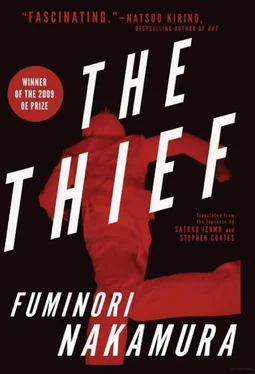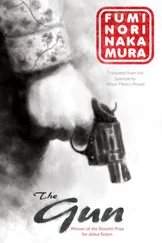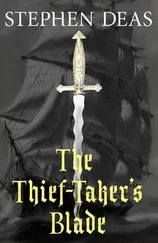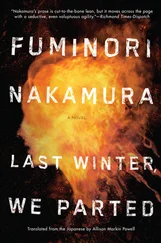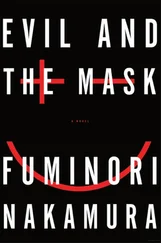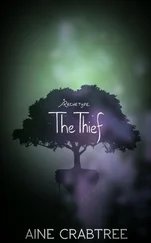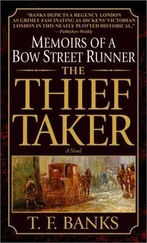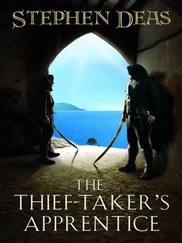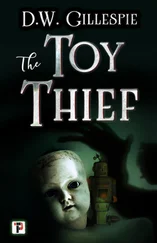“I guess he likes round numbers like ten million. No, he isn’t a bad person at heart. Probably he really did want to build schools in the Sudan and help refugees and stuff, just like they advertise. Subconsciously. So I helped him realize his subconscious desire.”
Ishikawa screwed up his face and laughed like a child.
“Look, in those countries there are thousands of people who die as soon as they’re born, right? Just because they were unlucky enough to be born in that place. Dying in droves with no time to fight back, all skin and bone and covered in flies. I’d hate that.”
I don’t know if it’s true or not, but he said that he gave one million yen to his accomplice, a woman from some foreign country who worked in the club. Then he spent another million the same day and sent the rest to an overseas non-profit where his ex-girlfriend worked.
Ishikawa was always good with his hands and he had a smooth tongue. In the past he’d drifted from one job to the next, only picking pockets when he needed money. Before I met him he was in a notorious investment fraud group.
“When I’m making my way invisibly through a crowd, it’s a special feeling. You know how time has different textures? The tension when you’re gambling or pulling off some investment scam is the same. The instant you move outside the law or sleep with some woman who’s off limits, like a mobster’s girlfriend, time becomes saturated. It’s ecstasy. Intense moments like those demand to be recreated, taking on a personality of their own. They tell you, again, I want that feeling again. Well, for me picking pockets is the greatest thrill of all.”
An arrest warrant was issued for Ishikawa for fraud and he fled to the Philippines, and then as far as Pakistan and Kenya. When he came back, however, he’d acquired a dead person’s identity. He had a new driver’s license and passport and certificate of residence — on the face of it he was a free man.
“The official story is that I died in Pakistan, so now my name’s Niimi. That means I was already Niimi when I met you. It’s complicated and I can’t go into details, but there are some things you’re better off not knowing.”
Because of the demands of the part of his life I wasn’t supposed to ask about, he spent Monday to Friday in an office all by himself, watching the phone. From time to time a call would come in and he’d answer with the name of a company that was probably fictitious. He collected the mail and very occasionally he’d receive a visit from a man who appeared to be some sort of official. Going out on the town with me was pretty much limited to Saturdays and Sundays.
At his request I went to the office several times to keep him company. But as fate would have it, when I was there one day I met the man. The door flew open, I spun round in surprise and there he was, right in front of me. At the entrance he turned off the light and looked silently around the room. I don’t know why, but the moment I saw him I regretted having come. In the darkness, without saying a word, the man walked inside.
With his black hair and sunglasses he looked like a broker of some kind, but I couldn’t guess his age. He could have been thirty, he could have been fifty. In the dim light shining though the curtain his shadow stretched along the wall. Naturally it moved when he moved, and his footsteps rang out strangely. Still watching Ishikawa, he opened the safe, took out ten million yen or so and stuffed it casually into a bag. Then he turned his attention to me for some reason.
“I’ll see you again,” he muttered.
I had no idea what was going on so I just stared back at him. After the man left, however, Ishikawa went on talking about pickpocketing, as if he didn’t want to give me a chance to open my mouth.
“There’s only been one time I really didn’t like dipping. It was a fireworks display, see? It’s pretty unusual, but sometimes you get some rich people mingling with the crowd, right?”
Looking at his face I gave up on asking about the man. Probably he fell into that category of things I was better off not knowing about. I tried to forget about him, though not very successfully.
“A middle-aged guy watching from his hotel room with his mistress, for example. She starts pestering him to go down and get yakisoba, or wants to go for a walk together or something. Ever since I was a kid I’ve loved fireworks. Poor people can see them for free and they’re great entertainment. Up in the sky, they’re equally nice for everyone.”
Sometimes Ishikawa’s expression was so innocent that he looked defenseless, but the echoes of the man still lingered in the room, and his eyes wouldn’t stay still.
“They’re really beautiful. One of the most beautiful things in this life, in the world. But we take advantage of that beauty, yeah? We’re waiting for a chance, when everyone’s absorbed in the beauty. We’re not looking at the fireworks, we’re looking at people’s pockets. That’s — I don’t know how to describe it.”
That’s what he said, but for me it was his skill that was enchanting. Nipping a wallet with three fingers, passing it back to me, and by the time I took out the money and return it he’d already have lifted the next one. Then he would lean his arm against the first wallet’s owner and without even looking he would put it back in the guy’s pocket again. In my eyes his movements were one of life’s beauties. At the time it never occurred to me that this beauty would vanish as swiftly as the fireworks.
When I went outside again the rain had stopped, so I dumped my umbrella in the basket of a nearby bike. I buttoned my coat, ignoring the cat that had been following me for some reason, and went into a supermarket.
It was warm in the shop and I started to sweat. I thought I spotted Tachibana, but then realized there was no reason for him to be there and exhaled in relief. One of the staff was watching me. I put bread, ham and eggs into my basket, grabbed a bottle of mineral water and headed for the checkout.
I was trying to work out why I’d come back to Tokyo. Ever since that violent, elaborately planned attack, I’d known it was dangerous to return. I wanted news of Ishikawa, but I wasn’t sure if that was the real reason. Thinking about how the situation had unfolded back then, I knew there was a strong possibility that he was dead, and almost certainly it wasn’t safe for me to be here either.
I noticed a mother with her child and I stopped. The woman, her damaged hair tied in a ponytail, touched the boy lightly with her knee. At that moment he slipped a packet of fish fillets into the Uniqlo bag he was carrying. A towel had been placed inside and by shaking the paper bag the stuff was hidden. My heart skipped a beat and I was annoyed with myself. The child was seizing the items earnestly, as though trying to live up to his mother’s expectations. He was skillful, and he seemed determined that even if he were caught his mother wouldn’t be blamed. Skinny legs poked out from his blue shorts and the sleeves and pockets of his green jacket were frayed. Inside the shop, with its cheerful piped music, they were conspicuous. I stood and looked at the boy’s clothes. The woman smacked him, maybe because he was walking too slowly. People turned to stare, but he was smiling. I thought he was probably ashamed. His smile looked automatic, insisting to the onlookers that he wasn’t the kind of kid who gets treated like that by his mother and that his mother wasn’t that sort of parent, trying to mask his mother’s disgrace.
I found myself following them. She nudged the boy with her knee again and he swiftly put some cup noodles in the bag. His hands were quick, but the bag was too small to meet his mother’s demands. A middle-aged woman in a dark blue coat disappeared around the corner of the aisle, keeping an eye on them. I was certain she was a store detective, employed by the supermarket to catch shoplifters. The child seemed to have noticed, but he couldn’t tell his mother.
Читать дальше
